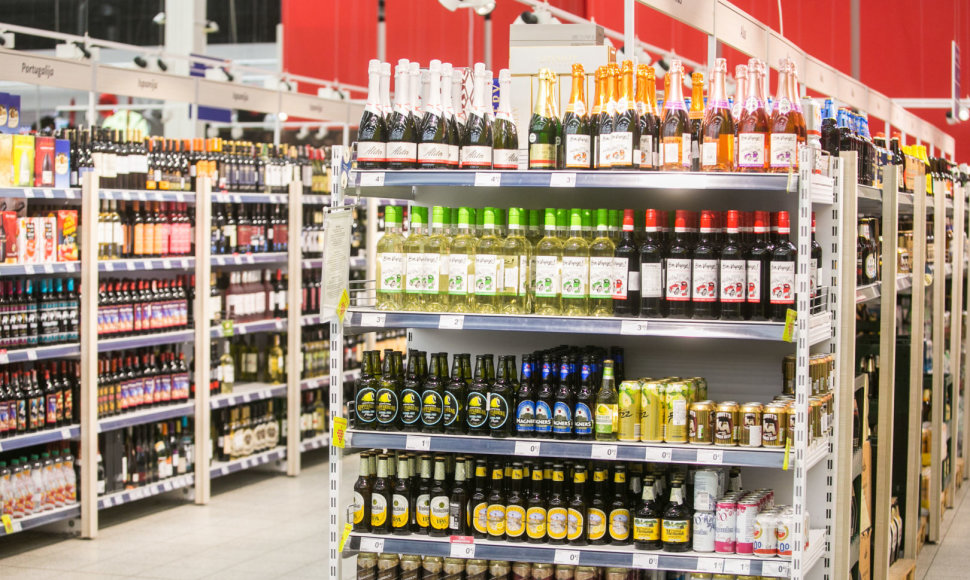According to Mr Mantas Zakarka, Head of the Lithuanian Association of Alcoholic Beverage Producers and Importers (LAGGIA) says that these figures are no longer surprising.
‘This result could have been predicted following the decision pattern of the governing majority. The excise duty has increased exclusively on strong alcohol over the last two years but the revenue from this category is decreasing.
Previously we were given an opportunity to stockpile before the new tariff of excise duty came into effect and that used to distort the overall picture within the market for a while. Whereas this year stockpiling is no longer an option and we are therefore seeing a more realistic situation’, commented Mr Zakarka.
The decline in revenue collected from excise duty on strong alcohol is the biggest amongst all types of alcoholic beverages. For example, the collection of excise duty from beer during the same period only fell by 1.3 percent.
Learn from neighbouring countries
When asked to comment on the current situation around collecting excise duty on alcohol in Lithuania, Mr Aivar Soerd, Member of Parliament in Estonia and its former finance minister, said that raising the excise duty without considering the policies and experiences of the neighbouring countries would be unwise. An excise policy is not like an excel table where increasing the numbers in one row will reduce them in another row. Buyers will always go with the cheaper alternative, choosing to purchase the goods on the border of the neighbouring country or finding other, sometimes illegal ways to do that.
‘It would be wise to coordinate the policies on excise duties with the neighbouring countries. Finance ministers from all the states involved could potentially discuss the planned excise policies on an annual basis. In the case of Lithuania any future plans in this area could benefit from aligning them with Latvia and Poland,’ says the Estonian MP.
The Estonian example proved that a tariff on alcohol which was too high only encouraged people to purchase alcoholic beverages on the border with Latvia. At the time the plan in Estonia was to collect around 350 million EUR into the budget from raising the excise duty. However, in reality only 230 million EUR was collected. So in order to reduce the number of people travelling into Latvia for their alcohol purchases, excise duty on alcohol has been lowered.
Increasing excise duty reduces revenue
There is currently no reliable way of measuring the true impact of border trading on the economy however figures clearly show that increasing the excise duty achieves the opposite results whereby the revenue collected into the state budget keeps falling.
‘We cannot ignore the fact that parking lots near the borders with Latvia and Poland are full of cars with Lithuanian number plates. Whereas good examples of how to implement the policies on excise duty are so close to us - I believe we should take the experiences of our neighbours into account,’ says Mr Zakarka.
Numerous examples from other countries have already proven that fighting against border trading does not achieve the desired effects. The only way to balance the collection of revenue from excise duties into the state budget is to have a consistent and data-based excise policy which is being continuously coordinated with the neighbouring countries.
‘We have already highlighted the fact that raising excise duty in Lithuania only encourages consumers to purchase from the neighbouring countries where the price is far more attractive. Not only does this not reduce consumption – it contributes to the budgets of the neighbouring countries too. We interpret the excise policy as a means to limit alcohol consumption. However, in order to achieve the best results we need to align our excise tariffs with those in the neighbouring countries as quickly as possible. And any subsequent decisions should not be taken last minute – a practice which has unfortunately been prevalent in Lithuania until now,’ the head of the Association advises.












